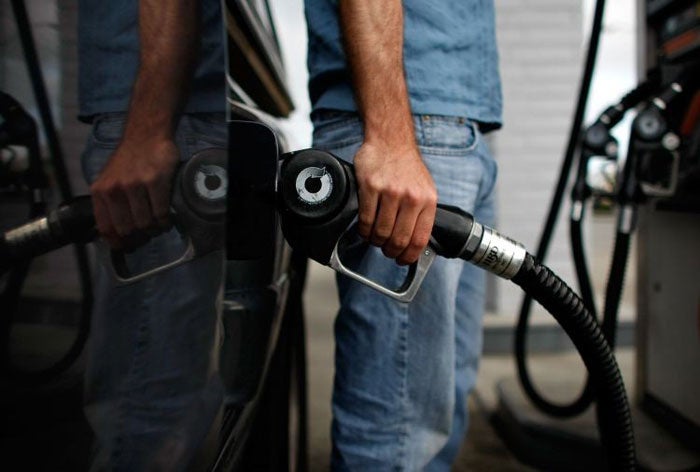Fuel prices drive cars off the roads

The credit crunch and the rising cost of running a car has caused traffic on Britain's major roads to drop for the first time since congestion was measured, a report has revealed.
The study, which examined traffic on 34 motorways and trunk roads in England, Scotland and Wales, found congestion fell by 12 per cent in the first six months of this year, compared with the same period in 2007.
The route with the most dramatic fall in congestion was the northern section of the M25, which showed a 26 per cent reduction in traffic jams over the period measured. Journey times around Birmingham also improved markedly with a decrease of 9.9 per cent. Overall journey times have improved by 0.3 per cent even though the average speed of traffic slowed from 63.3mph to 62.2mph.
The report's publication follows figures released by the Department of Transport which show the number of cars on the road has decreased in the first two quarters of this year, compared with the same period last year. The number of new cars sold in Britain in July fell by 13 per cent from June. It was the sharpest decline since December 2006.
Experts said the credit crunch and the rising cost of petrol and road tax had contributed to people cutting back on car use. Petrol is now more than £1.20 per litre in some places, while a litre of diesel can cost as much as £1.40.
The journey-times index was collated by monitoring the number of alerts received by the traffic monitoring company Trafficmaster, which controls a network of 7,500 cameras on Britain's major motorways and trunk roads. They send alerts to a central computer when the average speed of traffic on any road falls below 20mph.
Based on the number of these alerts received every year, Trafficmaster then assesses the level of congestion across the road network. From June 2006 to June 2007, the company received 932,001 alerts, compared with 837,063 between June 2007 and June 2008.
It is the first time that congestion has eased as opposed to worsened in the four years that the journey time index has been collated.
Georgina Read, from Trafficmaster, said: "We have been monitoring traffic for a long time and trends don't just happen for no reason. In the past six months, congestion has eased quite significantly. The credit crunch is clearly the reason for that."
"Rising fuel prices and general economic concerns are making people think carefully about how they drive. The upshot of less traffic is a drop in congestion levels, meaning motorists can get from A to B quicker while travelling at slower and more economical speeds."
Elizabeth Dainton, a spokeswoman for the RAC Foundation, said: "Part of the reason for these decreases is simply that there are fewer cars on the road as the price of fuel is making it too expensive for people to drive.
"People's budgets are being squeezed and what is happening is that they are changing their driving habits. While they are not necessarily getting rid of their cars, they aren't driving as often or they are perhaps car-sharing to save money.
"The figures show that congestion has steadily continued to ease over the past six months. It will be very interesting to see what happens over the next year or so because the credit crunch looks like it's going to continue."
One of the findings of the report is that people are driving slower on the motorway to save fuel. Ms Dainton added: "It is true that people appear to be aware of what is known as eco-driving. They realise that if they drive slower they will be able to make a tank of fuel go that bit further. It's quite sensible when you consider most people will be paying upwards of £60 for a tank of fuel."
Hugh Bladon, a spokesman for the Association of British Drivers, agreed. He said: "It does not surprise me in the least to hear that the price of fuel and the country's economic situation is driving people off the road. I think that what is happening is that people are continuing to make necessary journeys, but they are cutting down on social driving."
Join our commenting forum
Join thought-provoking conversations, follow other Independent readers and see their replies
Comments